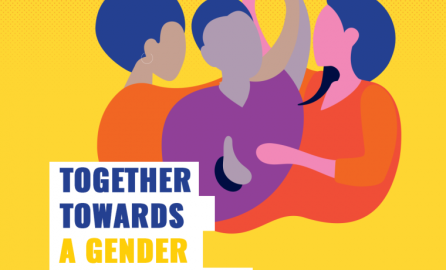One year after the launch of the five-year European Union Plan of Action for Gender Equality and Women's Empowerment in Development, the 2011 annual implementation report presented to the European Council showed that some steps have already been taken to improve the EU’s work with women and girls.
Many EU delegations and EU Member States are already putting into place new procedures to ensure that gender issues are systematically taken into account both in policy making and in their budget support programmes, according to the report , which was released in December 2011.
The report provides for the first time a comprehensive picture of what the Commission, the European External Action Service, Member States and EU Delegations are doing to promote gender equality.
“We received data from more than 70 Delegations,” said Elena Volpi, the EC’s Programme Quality Manager for Gender. “The fact that this report is mandatory means that all of us need to be accountable on what we do in gender; we have indicators, we have deadlines, we have to achieve the objectives [of the Gender Action Plan].”
Many findings refer to internal capacity development and, in particular, to the need to strengthen the capacity of staff at EU Headquarters and in Delegation on how to engage with government stakeholders and the civil society on gender issues.
The Commission is changing its approach to gender training in order to reach more people in different roles and at various levels. “We will no longer provide the traditional gender training in Brussels,” said Ms Volpi. “But we will try to integrate gender equality issues in all of the core trainings provided for EU staff -for instance on budget support, on programme cycle management, private sector development etc.”
The report also identified emerging challenges, noting the limited political and policy dialogue on gender in fragile, post-conflict countries. “The likely reason for this is that there are emergency issues that take priority at the expense of gender, although we should not forget gender in this type of context – on the contrary.” said Ms Volpi.
Gender can contribute to the long-term foundation of stability, she noted, and that particular attention needs to be given to capacity development and to promote policy on gender in those countries.
To find the full document and see other related information on gender, go to the capacity4dev.eu Gender Topic Page.

Log in with your EU Login account to post or comment on the platform.